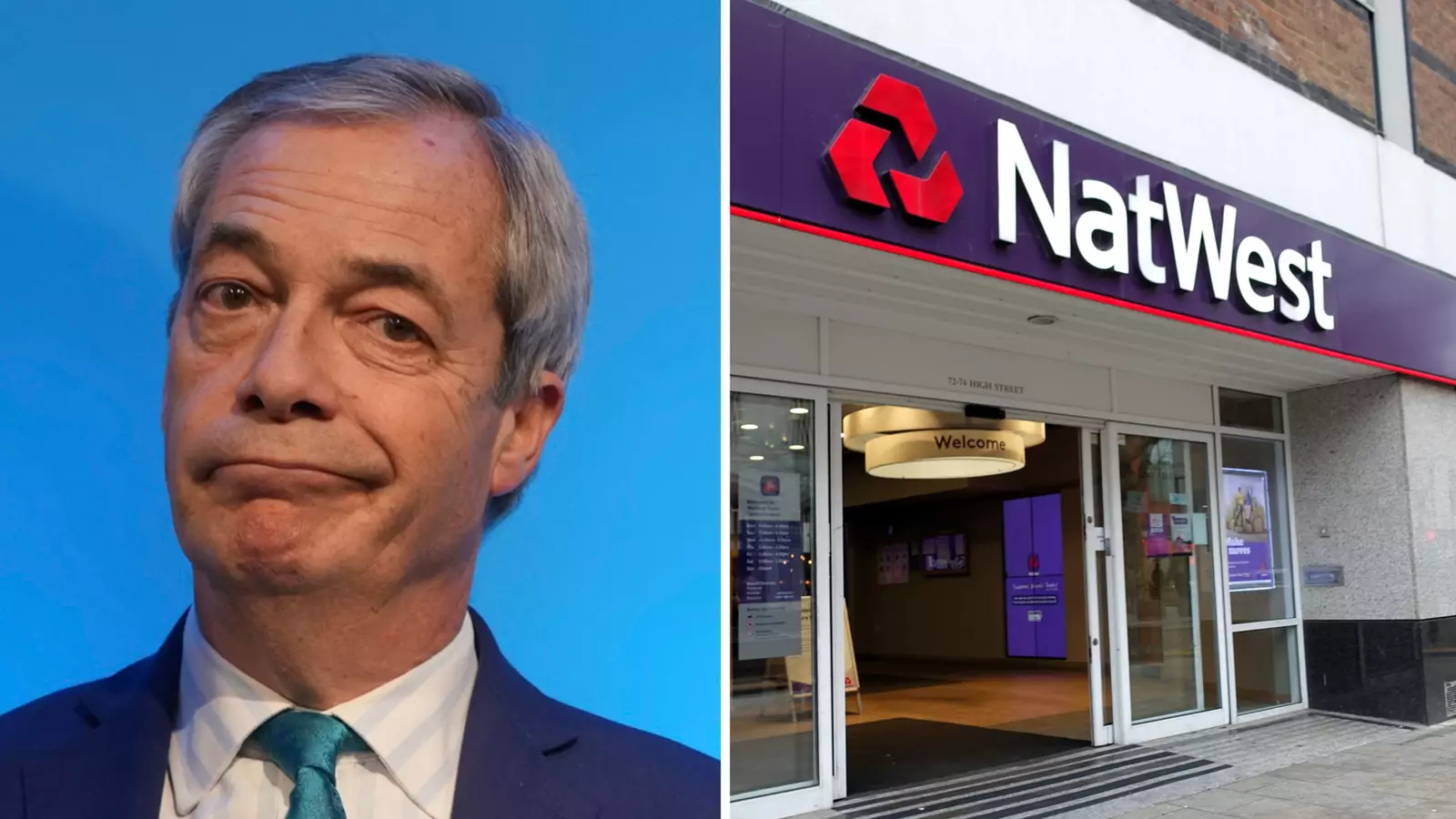Nigel Farage, the prominent leader of Reform UK, is delving into the tumultuous waters of Britain’s banking sector by considering private criminal proceedings against NatWest Group. This move follows a scandal that notably resulted in the ousting of Dame Alison Rose, the bank’s former chief executive. Reports indicate that Farage has brought Chris Daw KC from Lincoln House Chambers onboard to evaluate the potential for criminal charges against the banking institution. The implications of this decision could resonate throughout the financial industry and beyond, catalyzing broader conversations about accountability and transparency within banking practices.
Timing and Context
The strategic timing of Farage’s announcement cannot be ignored. It coincides with the impending release of NatWest’s annual results and comes just ahead of the government’s plans to divest its final shares in the institution. The backdrop of nearly 17 years since a £45.5 billion taxpayer-funded bailout adds a layer of public scrutiny to the situation. The political landscape is significantly altered as public sentiment shifts to precarious ground, reflecting distrust towards banking practices, particularly concerning politically exposed persons (PEPs) like Farage himself.
Farage’s assertion that his legal representatives are probing potential criminal conduct signals a shift from merely civil disputes to potential criminal liabilities. This transition is not merely procedural; it suggests an undercurrent of frustration and determination to hold powerful entities accountable. Dan Morrison, a partner at Grosvenor Law, noted concerns regarding possible criminal infractions linked to NatWest’s actions. This framing elevates the stakes, indicating that the debate is no longer just about financial loss or reputational damage but about fundamental legal principles of due process and ethical governance.
Political Ramifications
The incident has profound political ramifications, not just for NatWest but also for the Conservative government, which has seen its credibility questioned since the scandal erupted. The government’s intervention, expressed via statements from Prime Minister Rishi Sunak and then-Chancellor Jeremy Hunt, underscores the extent to which banking practices and political trust intersect. The debanking controversy exposed significant fissures in public confidence, prompting regulators to elevate their scrutiny of how financial institutions interact with politically exposed individuals.
Farage’s escalating dispute with NatWest comes at a time of resurgent political relevance for him and his party. His advocacy resonates with a growing segment of the electorate that feels marginalized by traditional political entities. The recent opinion polls hint at Reform UK’s upward trajectory, positioning Farage as a potentially defining player in future elections. Moreover, his apparent alignment with figures like Donald Trump complicates perceptions surrounding his political motives and ambitions, suggesting a possible remodel of Britain’s political landscape as national elections approach in 2029.
The Debanking Debate: A Broader Discourse
The NatWest debanking scandal transcends individual grievances; it lays bare a problematic trend within the banking sector regarding the treatment of clients based on their political affiliations. The internally leaked documents that suggested political motivations for debanking sparked a firestorm of outrage and scrutiny. In a world increasingly fraught with polarization, the necessity for accountability in financial dealings is paramount, prompting discussions necessary for the evolution of ethical banking practices. The ongoing dialogue must consider who gets to decide what factors are deemed ‘commercial’ and how those decisions are enacted.
As Farage prepares to amplify his campaign against NatWest, the manner in which the situation unfolds could significantly influence both public perception of the bank and broader regulatory practices surrounding banking and politics in the UK. The possibility of criminal proceedings not only fortifies Farage’s position but also invites deeper inquiry into the ethical veins of the financial industry. This scenario emphasizes a vital truth: in a democratic society, accountability for powerful institutions must remain a priority to preserve the trust of the public they serve. As the narrative develops, stakeholders across the political and financial spectrums will be observing closely, ready to engage in the evolving discourse surrounding governance, ethics, and the role of finance in democratic societies.


Leave a Reply